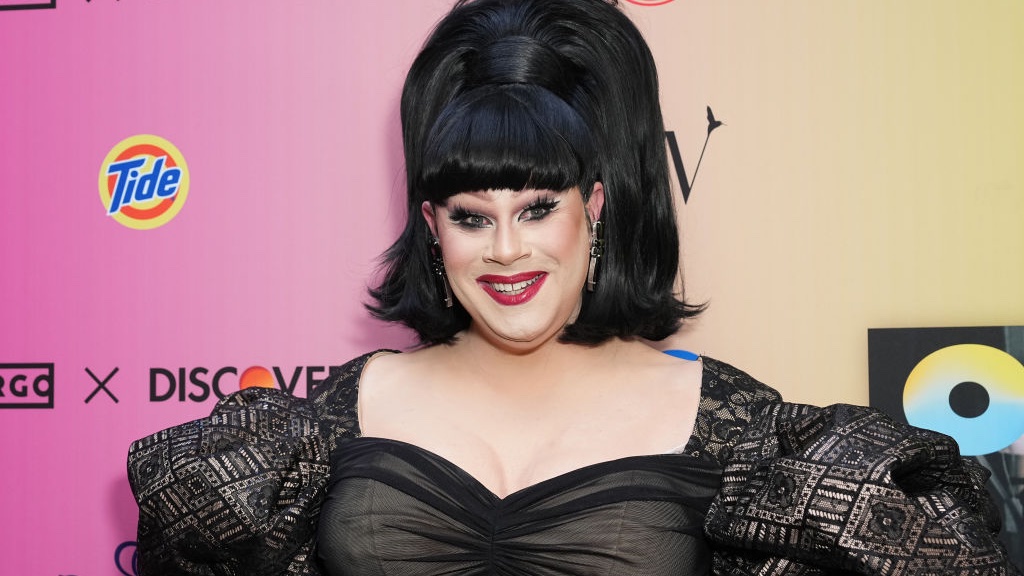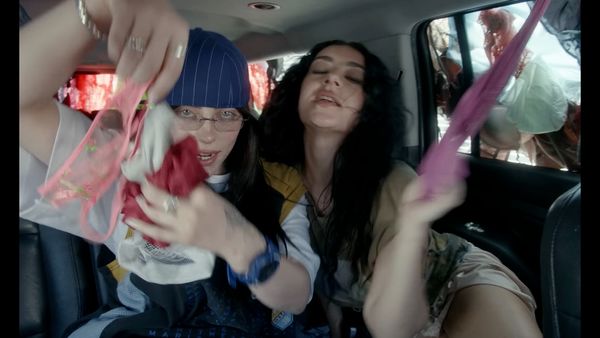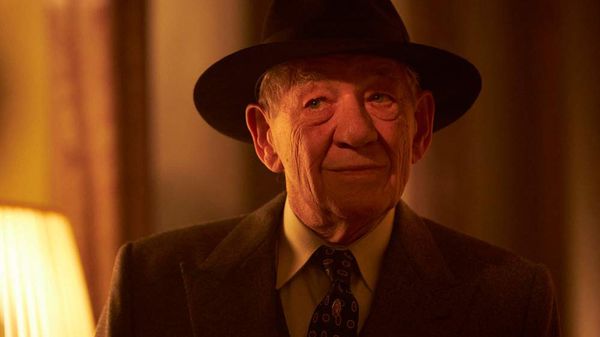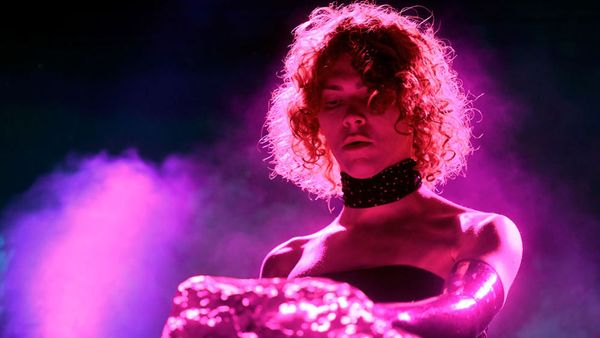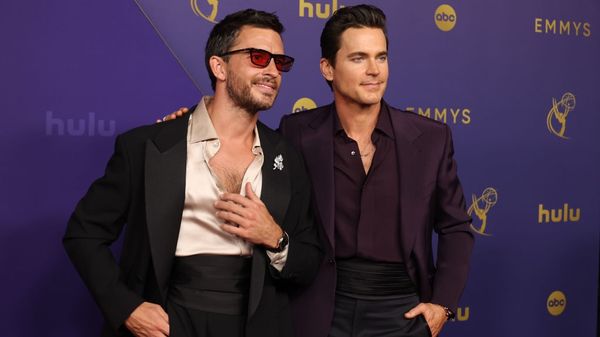Aug 21
EDGE Interview: Isaac Mizrahi Returns to His First Love with Latest Cabaret Show
Nicholas Dussault READ TIME: 15 MIN.
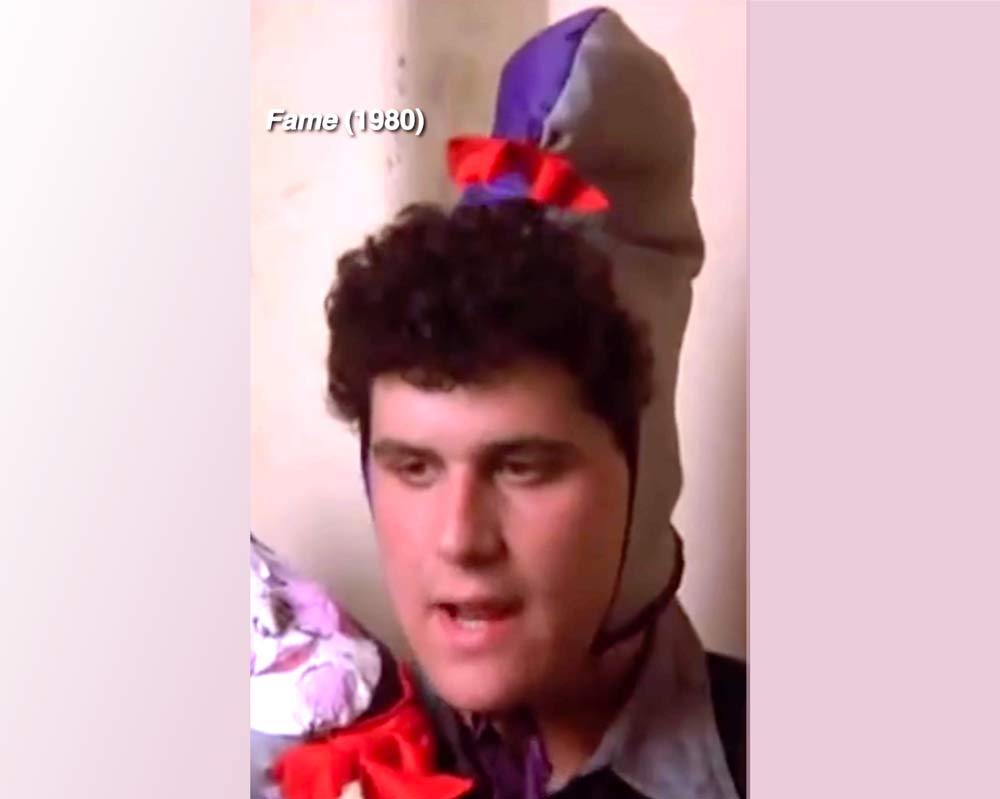
Source: Instagram
EDGE: Do you do much in the fashion industry now?
Isaac Mizrahi: I have a very big business at QVC which is great. I have a lovely design staff that works with me, but it's not really about runway shows and creating something absolutely new and big and inventive each season. It's more like, "Let's do these five colors in this T-shirt with this new neckline." It's great stuff that people need at a great price.
EDGE: Joan Rivers said her jewelry collection was created because she believed every woman should be able to afford beautiful jewelry.
Isaac Mizrahi: I have to tell you, she's a big inspiration in my life. I was good friends with Joan because I saw her a lot at QVC, but also because she was a fixture in New York. She used to buy my clothes, and I'd do fittings on her, and she invited me to dinners in her apartment occasionally. We had a lot of friends in common.
The great thing about Joan is that she was so inspiring. Sometimes when I feel like I am failing or like I'm just hanging on by a fingernail, I think about Joan. She had many moments in her life when she was just hanging on by her fingernail and she clawed her way back. I used to see her on red carpets and she'd say, "Look at where we are." I did a lot of red carpets, but I didn't love the talking. She loved it because she had total freedom, and people adored her for it.
EDGE: Do you ever find yourself playing fashion police in your mind when you see people?
Isaac Mizrahi: I really don't care. I think people look much better when they're not all dressed up from a squad, when they put themselves together. Even when they look mistaken, I think it looks better than someone who's being dictated to by a stylist. A great stylist can make someone look incredibly good. But other times it just looks like something a stylist put them in, and it doesn't work. That's why when I had my TV show and they asked me to do a makeover, I didn't like it. I don't believe in a makeover. You make someone over and they look okay, but they don't feel right in their own skin. Two days later when everything's growing out, they look the same old way or worse because now they're confused. It's a delicate thing to communicate.
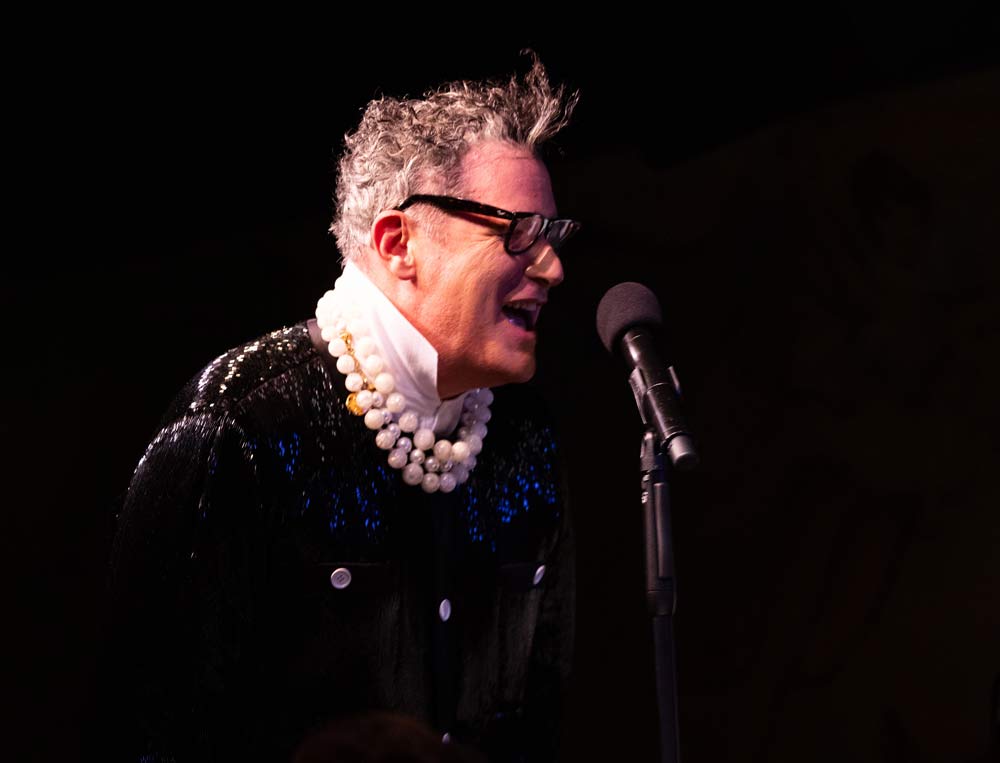
Source: David Andrako
EDGE: On your website there's a YouTube video of you with about 50 black jackets.
Isaac Mizrahi: Mm-hmm. I know it's wrong, but I always feel ridiculous when I wear anything but black. It's something about that sad emotion that I always feel fat. People love to wear color. When I'm on stage I'm challenging that a little bit. I think on stage one needs to make a presence, and granted, it's mostly black, but I've been making things with beads and brocades and sequins. I've been wearing whites with black, which is a new thing. And jewelry. I've never felt right about that, but for some reason, on stage singing and telling stories, it just feels right.
EDGE: When did you start doing music?
Isaac Mizrahi: It's hard to say, because I started doing music when I was like seven or eight years old, doing Streisand impersonations in the alleyway in Brooklyn. Any crowd that would gather around me, I would do my impersonations, basking in them. I guess what I did was a female impersonator. Trust me, darling, at age 11 this was not a source of pride to my family.
So, legitimately, I started taking piano lessons when I was six, and I learned to read music. And though I was in the drama department in high school, music was a huge part in it. I was an actor, but I played piano. And, you know, all those musicals in those days! I think I saw the original production of "A Chorus Line" 20 or 25 times. I saw it once with my parents, but it was playing right around the corner from my school, and in those days standing room was only $6. I also got to see the original "Chicago" with Chita [Rivera] and Gwen Verdon. I was obsessed with that show. I saw it maybe 30 times. I knew all the lines. I actually did a brief appearance in that show as Amos Hart.
EDGE: There's a YouTube video out there of you rehearsing "Mr. Cellophane." You sound great.
Isaac Mizrahi: Well, thank you, darling. I used to like to go out with Liza [Minnelli] and she would take me to all these crazy places and clubs and, occasionally, after saying "No. No. No" several times, she would get up to sing. Then I would do a number, and it felt like it was part of my DNA. I guess you could say I started doing it at [long-time NYC piano bar] Eighty-Eights. There was a little room upstairs where I had this great act with the Ben Waltzer Trio. From there I got to play Joe's Pub, and eventually, in 2016, after playing every club in the tri-state area, I played the Carlyle. It was such a success that it turned into a kind of yearly residence.
I forgot to tell you that I had this one-person show off-Broadway that ran for two years in 1998 or something, maybe 2000. It was very well-received, and I could probably still be doing it. It was the greatest time in my life. I wish I could get that time back in a bottle. The Village was something special. The show was at the Barrow Street Theater, which used to be the Greenwich House. I walked to the theater from my apartment every night. I did two shows on Fridays, and two on Saturdays. I wrote it, I designed the set. It was called "Les MIZrahi."
EDGE: Are you ever afraid to put yourself, a fashion icon, out there in such a vulnerable, public way?
Isaac Mizrahi: In my waking hours I'm not afraid of anything. In my sleep I'm afraid of everything, which is why I'm not a great sleeper. I am tortured by everything, aren't you? I'm just not afraid of going out there and showing people my work. I am on the inside, but something makes me do it. I have terrible stage fright, the worst, but of course the minute I get on stage I breathe, and within a split second it goes from horror to, "This is the best thing, how did I forget how incredible this is?"
I hate to keep bringing her up, but Liza was such a big part of me getting over stage fright. I had asked her to present me with the CFDA Fashion Award, and there we were at the Met, and she said, "You're very nervous. Honey, think of yourself after this is done sitting in your bedroom eating a big bowl of ice cream." She knows I love ice cream. "Who cares if you make a fool of yourself? You'll be fine, eating ice cream soon." All of a sudden everything unclenched, and I was fine. I think of that all the time. You're just two hours from having showered, in bed watching "The Golden Girls" while eating ice cream. The bachelor's life.
EDGE: You're married. Tell me about your husband.
Isaac Mizrahi: I have a doll of a husband. He's incredible. You know what's so great about him is that it's not that he's not impressed by all of this, he's just so outside of everything. That's what I wish for you and everybody, that they find the exact opposite of themselves. He's very content to be at home, doesn't want to go to the parties or my shows. He likes being with me and our dogs, and that's what's most important to him.
EDGE: Is there anything you would change if you could go back and do it all over?
Isaac Mizrahi: I also think about that, and the answer is no, I don't think I would. This kind of struggle I'm having to firmly plant myself in show business, I feel like I have a really good chance of actually doing it. I have this great culture that comes from my years of exposure, my years of traveling around the world, my years of knowing all these incredible people. No, I wouldn't change it.
EDGE: What do you want your legacy to be?
I was good friends with Stephen Sondheim, and he used to say, "You're a polymath." I thought he meant it as some kind of dig, like, "You don't do one thing well, you do everything badly." I didn't want to question him. He was such a master. He made these shows. Mark Morris, another great genius, is my other best friend. He makes these incredible dances. They're both really, really focused. I was kind of freaked out being friends with such great geniuses. Steve finally explained to me that being a polymath was a great thing, so I want that on my tombstone.
Isaac Mizrahi
"He was a polymath"
– Steven Sondheim
"Isaac Mizrahi performs "Isaac Mizrahi: A Brief History" at 54 Below, 254 W 54th St. Cellar, NYC 10019, August 28 – 31. For ticket information, follow this link.)
